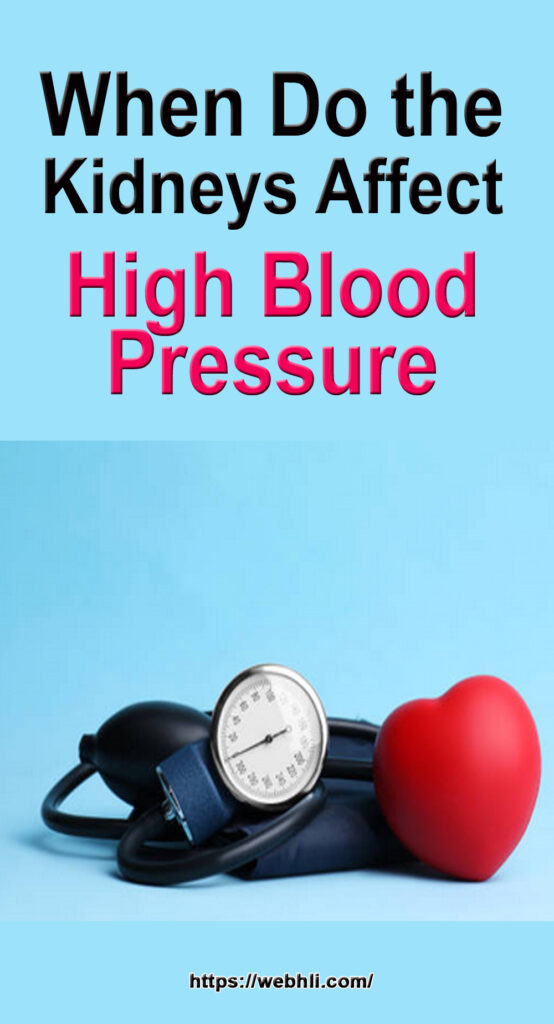
Kidneys affect high blood pressure due to certain imbalances while in the process of cleansing our body of about 50 gallons of fluid daily. Any imbalance will cause the filtering units of the kidneys called nephrons, to exert more effort than what is normally required.
The nephrons will also reabsorb the filtered sodium and water and return them to the blood. If there is an excessive amount of sodium and volume of liquid that the kidneys failed to expel and flush out, it follows that there will also be an excessive amount of sodium and water to be re-absorbed by the nephrons back to our blood.
Check out these related articles, too:
Kidney Failure Symptoms Things To Watch Out For
Reviving Kidneys Through Ayurveda Medicine
Detecting Kidney Disease and Dysfunction: Three Steps to Protect Kidney Health
Alternative Remedies That Improve Kidney Function
Does a Kidney Disease Cure Exist? The Answer May Surprise You
The Treatments Available For Kidney Failure
Kidney Disease Diet - Help Reverse The Damage Using These Simple Techniques
How to Prevent Our Kidneys From Malfunctioning
Excessive amount of sodium in the bloodstream will now cause an imbalance with the other minerals contained in blood cells. This then will trigger the onset of high blood pressure as there is now a disproportion between sodium and other minerals particularly potassium.
Under normal processes, the kidneys regulate the flow of fluid volume of the blood as well as limiting the sodium, potassium, calcium, and magnesium contents in the body system. These minerals affect the relaxation of arteriole muscles or small blood vessels branching from an artery.
The kidneys will remove the water, remaining wastes and excessive materials from the blood to be distributed again already purified against wastes, back into the bloodstream. The waste products and liquid that contain these minerals are excreted in the kidney by producing urine.
The body has two kidneys about the size of an adult fist. Even if the other kidney is impaired, the body can fully function with only one kidney to perform the process of filtering excessive sodium and chloride substances in the blood. However, the ability of a single kidney to function well on its own will depend on the dietary intakes that the body receives.
What Causes Excessive Sodium in the Body
The body reabsorbs sodium as sodium chloride or table salt to conserve energy. On the other hand, the reabsorption of sodium is not at all advantageous due to the processed foods we eat with high sodium chloride content.
Unlike processed foods, unprocessed foods are naturally balanced with little sodium and sodium chloride. Sodium can be found in a variety of food groups including citrus fruits and grains which are called citrate and glutamate, respectively.
The body reabsorbs around 99 percent of sodium thereby an active adult needs only a daily intake of 300 milligrams of sodium, or even less according to some experts. Hence, salt is no longer needed in the preparation of food since most food groups contain sodium.
How Imbalances Affect the Kidney In Ways that Lead to High Blood Pressure
Aside from sodium, hormonal systems can influence the function of the kidneys resulting to sodium reabsorption. Hormonal imbalance occurs, in the case of overweight persons who tend to produce excessive insulin. By a natural reaction, excessive insulin will cause sodium reabsorption in the cells which will cause a chain reaction of disporportion leading to the elevation of blood pressure.
Another example is when the adrenal glands produce aldosterone which triggers the kidneys to preserve sodium and chloride and expel potassium. Aldosterone enables the retention of sodium by the kidneys and sweat glands. Although produced by the adrenal glands, the kidneys regulate the hormone angiotensin and the enzyme renin.
Any failure of the kidney to regulate the production of the hormone angiotensin will cause a constriction of the arterioles. Constricted or closed arterioles will cause blood pressure to rise since they are at the receiving end of the blood circulation processes. The pressure that prods blood to surge forward will meet closed or constricted arterioles which causes a build-up leading to high blood pressure.
The kidneys release renin when you are under stress or when somebody attacks you. People with Type A personality produce excess renin which will bring high blood pressure. Other related excess renin can be pinpointed to lack of magnesium.
If aldosterone is caused by an illness, medical treatment is necessary. But when the sodium excretion of the kidneys is not a known factor called natriuretic factors, diets with low or high sodium will level their proportion. In totality, the kidneys affect high blood pressure due to sodium reabsorption, diet and hormonal influences.
Alvin Hopkinson is a leading health researcher in the area of natural remedies and high blood pressure treatment. Discover how you can get rid of your high blood pressure for good using proven and effective home remedies, all without using harmful medications or drugs. Visit his site now at http://www.minusbloodpressure.com
Article Source: http://EzineArticles.com/2311490

 Protected by Patchstack
Protected by Patchstack